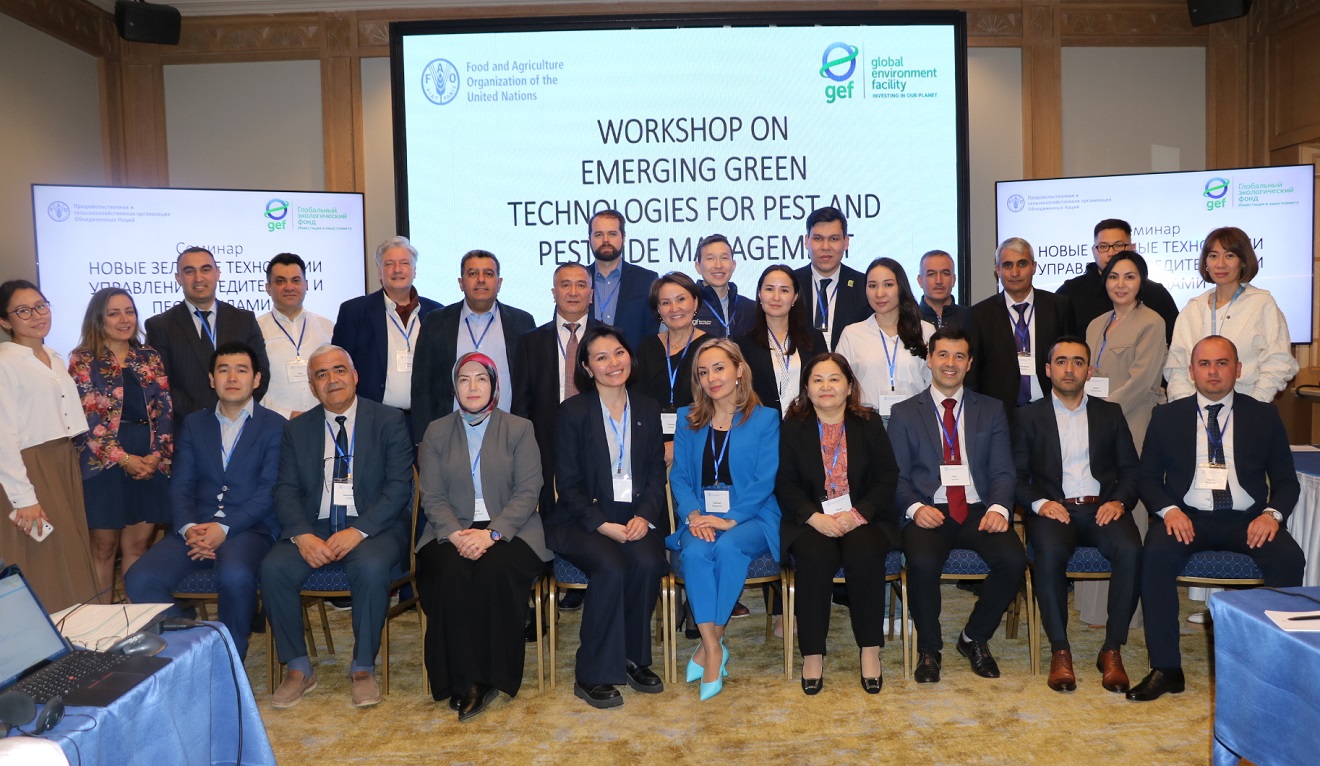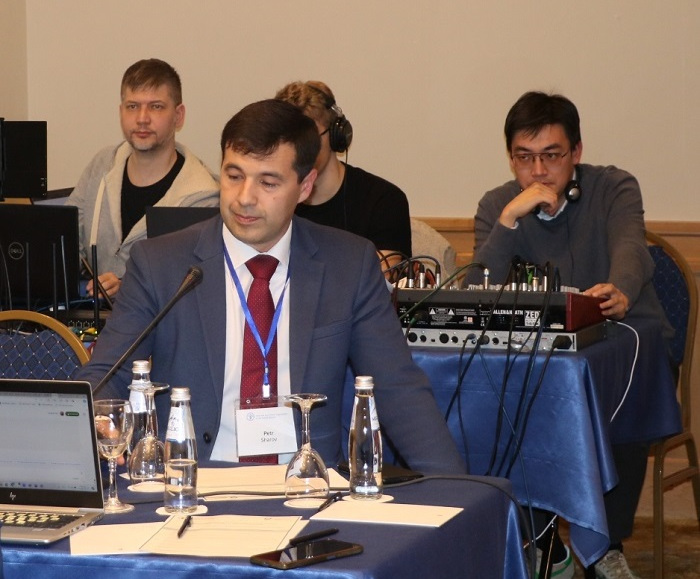International Workshop on Emerging Green Technologies for Pest and Pesticide Management in Kazakhstan
On 16th of April 2024, the EHPMI president Petr Sharov participated in the International Workshop on Emerging Green Technologies for Pest and Pesticide Management in Almaty, Kazakhstan. The conference united experts and representatives of the government and international organizations from EU, UK, Kazakhstan, Kyrgyzstan, Tajikistan, Turkey, Azerbaijan, and Russia.

The conference was organized by the Food and Agriculture Organization of the United Nations (FAO) and the Ministry of Ecology and Natural Resources of the Kazakhstan Republic as part of the project Pesticides in Central Asian and Turkish Countries” funded by the Global Environment Facility (GEF).
FAO provides assistance to many countries worldwide on sustainable and environmentally friendly agricultural technologies. “Today at the conference, we were discussing the methods available in the world that Kazakhstan farmers could potentially use in the next 10–15 years”, said Stefan Robinson, FAO Senior Technical Advisor on Pesticide Management.
Petr Sharov commented on the event: “The conference was very productive for the exchange of opinions and information between representatives of the governments, international organizations and experts. The issues of pesticides are quite similar in the countries of our region. Therefore, we should use such opportunities to exchange experience and avoid reinventing the wheel.
I found most interesting the presentations about the achievements in bioremediation. Such methods allow cleaning up sites with relatively low concentrations of persistent organic pollutants. In our studies in this and previous projects we found more than 300 such sites that pose threats to the health of people. Most of such sites are in Kazakhstan, Tajikistan, and Azerbaijan. It is very important that now the methods of bioremediation are used to clean up those contaminated areas. It will require much more efforts and coordination between our countries”.

